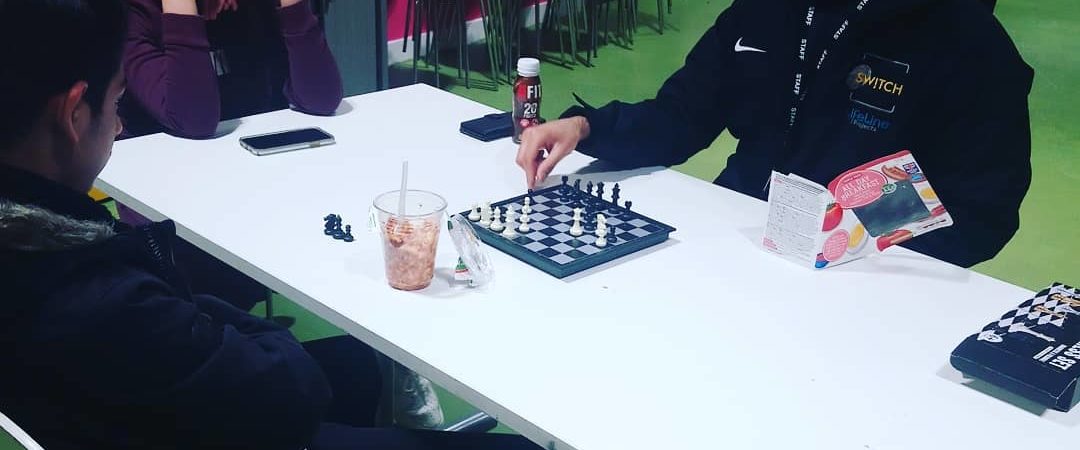We spoke with Kiera, one of our SW!TCH Youth Development Workers, about the ongoing support she’s been delivering to Rose*, a young person dealing with multiple and complex needs who had been admitted to a local mental health unit.
*Names have been changed.
Can you tell us a bit about Rose?


I started working with Rose at the end of November after she was referred to us by local social services. Rose has grown a lot in the six months I’ve worked with her—when we first met, she was partially non-verbal; we would only be able to communicate easily with yes or no questions. If it was a multiple choice question, we would use makeup brushes or cosmetics to resemble an answer and Rose would make her choice by picking one.
Rose has come out of her shell so much in this short period of time. She’s now able to tell me how she’s feeling and she’s even able to hold a conversation with me now, which is such a huge improvement.
Rose is a very bright individual with a lot of potential to achieve great things in her life; however, I feel this has been clouded by her mental health and lack of self-esteem. She enjoys ice-skating and horse riding, which has been key for her recovery as her motivation to get back to doing the things she loves.
What kind of issues has she been facing?


Rose has suffered with mental health issues for around four years now. She has worked with CAMHS multiple times within this period; however, they have never been able to find the correct support that works for her. While she has a history of self-harming in different ways, since being hospitalised Rose has stopped all forms of self-harm other than starving herself.
She also suffers with psychotic episodes, which have manifested as a voice telling her to perform a certain action or something bad will happen. She has also reported seeing shadowy figures that sometimes try to harm here, leaving her unable to breathe.
Rose had been a school refuser for around 18 months at the time I started working with her, due to issues with bullying. While she has never received a formal diagnosis of learning difficulties, and the school had not identified any behavioural issues, we identified multiple behavioural issue with Rose at home, including several suicide attempts as well incidents of domestic abuse aimed towards her family members that were severe enough for the police to intervene.
What are you doing to support Rose?


Throughout my time working with Rose, we’ve used many different support strategies. Our weekly one-to-one sessions together were made longer to help give her more time to process everything, while also allowing me time to check in with her family about recent events. I’ve also being attending school in the mornings with her to support her—this started at two days a week, but we’ve recently reduced it to just one due to the progress she’d been showing.
I’ve been sitting in on the various meetings the family attend regarding her situation, and I speak with them afterwards to ensure they’re comfortable and are processing and understanding all the information given to them.
Sometimes when dealing with other professional, Rose will revert to non-verbal communication and only engage with me. Due to our time together, I can read her body language and get her to answer certain questions—essentially acting as her interpreter so she can be involved in the meeting without putting too much pressure on her.
The rest of the SW!TCH team have been offering ongoing emotional support and advice to her family. I’ve also made sure that we stay in contact regularly, up to and including daily check-ins to ensure both Rose and her family are doing okay.
How are you working with the local mental health unit?


I communicate with the mental health unit at least once a week—this is usually when I attend school with Rose; I normally have a brief catch-up with their team in the mornings. We also communicate about any incidents with Rose that occur to ensure she gets joined-up support.
For example, there was a time at the mental health unit when her blood pressure was dropping dangerously low and she was refusing to drink water. The team there called me up so that I could speak with her as they knew I would be able to encourage her to cooperate with them.
Can you tell us about Rose getting discharged?


I made myself available to sit with Rose and her mother to discuss her options: she could be discharged from the mental health unit but continue to receive support from both us and other agencies, or she could choose to be admitted to a psychiatric ward to receive more direct care. We spoke about the positive and negatives of each; due to the close bond I had developed with both Rose and her family, I knew they valued my opinion about the options presented to them.
While I am not a medical professional, working closely with the family for some time allowed me to understand their dynamics and emotional situation. I explained to them that I felt it would benefit all of them if Rose were to be admitted to the psychiatric ward—this would give her the around-the-clock support she needed from a team of professionals. This would also give her mother space to focus on herself while knowing her daughter was safe—she had been putting on a brave face for Rose this whole time, despite going through a very stressful and scary period.
Are there any other particular incidents that stand out?


Early on in our time together, her grandmother suddenly called me; she said that Rose had overdosed at home and had been admitted to hospital as a result. Unfortunately, I was out of the area at the time while being on leave, but I made sure that they could contact me at any time until I was back.
I went to see Rose in the hospital as soon as I could—we talked for about 4 hours, going over everything that happened and what led her to overdose. She was very emotional and tearful; I had never seen her so vulnerable before, and it was really upsetting.
She had been questioned on various aspects of her mental health whilst in hospital, which she had found very stressful. So, throughout my visit, we played some games together to try and make everything seem a little bit more normal, which really helped to centre her.
Why do you think she's engaging better with us than others?


It’s hard to pin down an exact reason, but right from our very first session, I saw her come out of her shell, and it’s only been getting better since then. She has mentioned to me that she likes working with us because our team are quite young and she’s able to talk to us about new trends – for example, we talked a lot about creators on TikTok, which she enjoys look at it, particularly for videos to dance along to.



